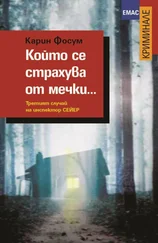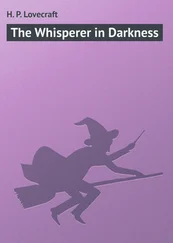She shrugged and looked away. Sejer put the absent son to one side like a piece of luggage he did not need at the moment.
As they talked, he observed this quiet creature. She sat poker straight on her chair, without moving, at the ready, and was clearly in awe of the authority he represented. However, he knew that given time, a few hours or days, she would slowly thaw. She would start to move, use her hands more, shift position, lean forward and pull back, he had seen it before. Not like the loud, aggressive ones, he’d met plenty of them in his time. They tended to lean over the table, banging their fist to emphasise their words, or they moved the chair to make as much noise as possible. Some stomped around the room and cursed and swore, as they screamed those words that he had heard so often in the playground. ‘He started it.’
Ragna would never be able to raise her voice. This knowledge gave her a stoic calm, kept her in her place; in a way it held her hostage. It is hard to be beside yourself when you cannot scream. She doesn’t belong here, he thought. She has everything under control. An old house in Kirkelina that she had inherited from her parents. A job and good colleagues. She did not earn much, it was true, but she lived alone and did not need to pay off a mortgage. She did not look like a woman with expensive habits, and certainly did not look like someone who drank or took drugs. And yet here she was, sitting opposite him.
‘Do you have any recordings from when you still had a voice?’ he asked.
Her water-blue eyes widened in surprise. No one had ever asked her that before, not a single person. She thought fleetingly that this must be how it felt when a woman was allowed to talk about her dead child. To talk about the dead child for the rest of her life to someone who was not afraid to reawaken the grief.
‘Why do you ask?’ she whispered, and felt happy. Her cheeks reddened.
‘I’m just curious,’ Sejer replied. ‘And if you did have a recording, I would ask to hear it. I’m trying to imagine how you would talk if you could talk.’
‘I don’t have any recordings,’ Ragna said. ‘But everyone told me that I sounded like a little girl. When strangers phoned, say a salesman, and I answered and said my name, I always got the same response: Are there any grown-ups there? It amused me every time. It became a kind of game. Embarrassing people by saying that I was nearly forty, and was alone at home, that my parents were no longer alive.’
‘Amusing game,’ Sejer said. ‘And now that you can only whisper? Do you still like to embarrass people when they ring?’
‘I don’t answer unless I recognise the number on the display. I reckon that if it’s important they’ll phone again. If I get a text, I answer. Or an email. But I don’t get many, it’s mainly advertising.’
‘And if someone rings at your door? Do you answer then?’
Something passed between them, like an electric current. Given everything that had happened.
‘Generally I do,’ she whispered, and looked down. ‘I’ve got quite good at nodding and smiling or shaking my head, or I use my hands. And I close the door again quickly if it’s not important, but then it’s never important. They’re all trying to sell something. But if it’s a child collecting money for something, I go in and get some change. Then wave them off. I can wave in different ways. Friendly or dismissive. I can wave people off like insects. Or hold up my hand like a stop sign.’
She raised her hand to demonstrate.
‘How do you manage when you’re out and about?’
‘Not very well,’ she admitted, ‘as you can probably imagine. I tend not to be out on the streets much, as there’s so much noise from the traffic. And there’s music in practically all the shops. Just the sound of an escalator or lift is enough. If I meet someone who wants to talk, I’m no use at all. It might be someone asking for directions, but I know they won’t be able to hear my answer, and because I don’t want to seem difficult or unhelpful, or arrogant for that matter, I tend to avoid situations like that as much as I can. But I do have to go out. I need to buy food and run other errands. Obviously my neighbours know, and I try to shop in the same places.’
‘And what about your colleagues at work? At Europris?’
‘They don’t have any problem hearing me, they’re used to it and have learned the technique. But we do have to be face-to-face. You’ll get used to it too,’ she whispered. ‘I can see that you’re making an effort. And your efforts are a heavy burden to carry. I don’t impose myself on people unless I have to.’
‘But there are lots of customers in the shop.’
‘I try to solve one problem at a time. I nod and smile and point.’
Ragna lowered her head again. A signal that the ball was in his court. He wondered if she had developed exceptional hearing in the way that people with hearing difficulties often speak loudly and clearly. He did not ask. He was still astonished that she was sitting there, that she had ended up in this situation, when she was about as robust as a reed and almost inaudible to boot. He could not see her hands, as she had them hidden in her lap. He wondered how much she could lift, how fast she could run, how hard she could hit. Everyone uses whatever weapon they have to hand. It struck him that being here in this room, as they were sitting now, face-to-face, alone without noise or distraction, was the best possible situation for unpacking the truth. The conditions for lying were not optimal.
What was it his dear old mum used to say, before a blood vessel in her brain punctured like a bicycle tyre and laid her life to waste? All those memories lost — the ones that had already happened, and those that would never happen now.
‘Absolutely everyone, at least once in their lives, should break down in tears of regret.’ That is what she had said. And then she died. Ragna Riegel was sitting in front of him, steeled by sheer determination. Would she break down in tears of regret?
She had had the job at Europris for many years. But none of her colleagues had known her before the operation, and had no idea the first time she opened her mouth. Ah, right, was all they said, and did what they could to help her. Sometimes she sat on the till, otherwise she was out in the storeroom; there she opened the boxes with a sharp knife, then took the goods into the shop in a trolley, where she priced them and put them out on the shelves. If a customer came over to ask for something, she answered with a friendly smile and then, without a word, went over to the correct shelf, pointed at the thing in question and gave them a friendly nod. Her smile was her weapon, her self-defence. If it was a question she had to answer, she whispered as clearly as she could, and then put her finger to her lips to indicate that she had a handicap. The customer usually nodded politely before hurrying off down the aisle. Many of them were regular customers who came to understand the situation. Several of Ragna’s colleagues were of a similar age to herself, which she was glad of. She did not get on so well with the younger ones, as they made her feel uncertain. She did not know their world, barely understood their language. The meaning of the jumble of words and strange abbreviations, often in English, evaded her. One of her colleagues, Lars, who was quite a bit younger than her, often called her Ragnarokk, and she liked that. She liked the fact that he was not afraid of offending her, that he never weighed his words, and that he sometimes responded to a whispered question from her by saying, don’t you stand there shouting at me!
Then they would both burst out laughing, Lars would bellow and she would laugh in her own quiet way, like a panting dog. She had kind of given her colleagues permission to tease her. But that was not true of strangers. Because she did not have a voice, she was all the more interested in other people’s voices. If only they knew how much they revealed every time they opened their mouths. Some hid behind a wall of sharp noises, others mumbled and were incomprehensible. Some sang rather than spoke their melodious sentences, whereas others had voices that were flat and expressionless. And there were always those who shouted and brayed to get attention.
Читать дальше












